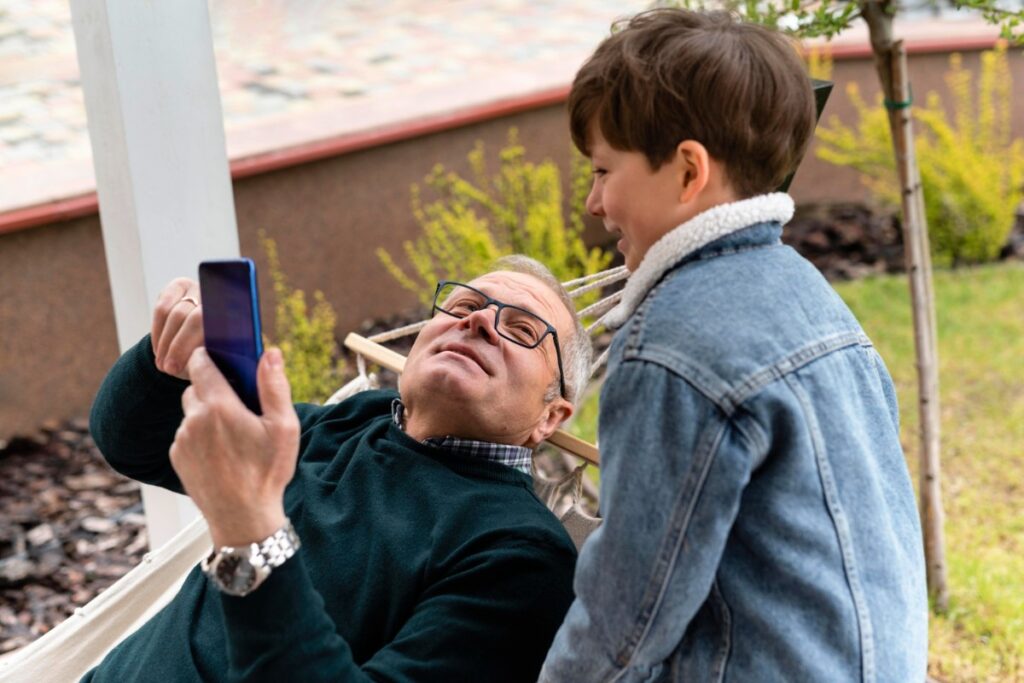11 Annoying Phrases Many People Are Sick of Hearing and Why it Matters
Certain phrases tend to get under the skin of older people more than others. These expressions might seem harmless or even funny, but for them, they can feel repetitive or frustrating.
Understanding which phrases cause this reaction can help you communicate more smoothly. By recognizing these words, you’ll be better equipped to show respect and improve your conversations with older folks.
Back in my day

When you hear someone say, “Back in my day,” it often feels like they’re about to compare everything to the past. You might notice this phrase used to dismiss modern ideas or trends quickly.
It can be frustrating because it doesn’t always recognize how much the world changes. You’re probably just trying to explain things in your own way, but it may come off as lecturing.
Try sharing your point without relying on this phrase. It helps keep conversations open and less repetitive for everyone involved.
It’s like, soooo easy

When you say “It’s like, soooo easy,” it might come off as dismissive to those who have spent years working hard to learn a skill. You might not realize that what seems simple to you took practice and patience for others.
Your phrase can feel a bit frustrating if it downplays the effort behind tasks or challenges. Everyone’s experience is different, and what seems easy to one person may not be for another.
Instead of making things sound effortlessly simple, try acknowledging the time and work behind the scenes.
I’m just being honest

When you hear someone say, “I’m just being honest,” it can feel like they’re trying to excuse rudeness. Honesty is important, but it doesn’t give permission to be hurtful or dismissive.
You might notice this phrase is often used to shut down conversations. It can come across as a way to avoid listening or understanding other points of view.
Try sharing your thoughts kindly. You can be honest without making others feel attacked or uncomfortable.
No offense, but

When you start a sentence with “No offense, but,” it often feels like a warning that something rude is coming. It can make the other person brace for a put-down, even if that wasn’t your intention.
You might think it softens your words, but it usually just draws more attention to what’s about to be said.
Older generations often hear this and feel like you’re excusing an insult. Using clear, respectful language works better than putting a disclaimer upfront.
You wouldn’t understand

When someone says, “You wouldn’t understand,” it can feel dismissive. It often shuts down conversation instead of inviting a chance to explain or learn.
You might be trying to express a unique experience, but it can come across as assuming the other person lacks empathy or knowledge. This phrase can make older people feel excluded or underestimated.
Try sharing your perspective with a bit more context. It helps keep the conversation open and shows respect for the other person’s willingness to listen.
Whatever floats your boat

You’ve probably heard “Whatever floats your boat” more times than you can count. It’s meant to be casual and accepting, but for some older listeners, it can feel dismissive or lazy.
When you say this, it might come off as if you don’t really care about the choice or opinion being shared. People want to feel heard and understood, not just shrugged off.
Try showing genuine interest or asking questions about why someone feels a certain way.
That’s so cringe

You might think saying “that’s so cringe” is a quick way to show disapproval. For older generations, it often sounds dismissive or overly dramatic.
They grew up using clearer, less trendy ways to express discomfort or awkwardness. When you say “cringe” all the time, it can feel like you’re shutting down conversation instead of explaining why something bothers you.
Try describing what you actually find awkward or uncomfortable. It makes your point stronger and helps others understand you better.
I’m literally dying

When you say “I’m literally dying” over small frustrations, it can feel over the top to older people. They tend to take language more literally and might find this phrase confusing or annoying.
Your everyday problems probably don’t equate to actual danger or illness. Using this phrase casually can make it harder for real emergencies to stand out.
Try choosing words that match the situation without exaggerating.
I can’t even

You’ve probably heard this phrase used whenever something mildly frustrating or surprising happens. It’s meant to show strong emotion but often leaves people guessing what exactly you can’t handle.
Saying “I can’t even” without finishing the sentence can feel vague and confusing. Older generations sometimes find it unclear and overused in casual conversations.
Using complete thoughts instead of this phrase helps you communicate more clearly.
Adulting is hard

You hear this phrase a lot, and it often comes across as a complaint. It suggests that handling everyday responsibilities is some kind of overwhelming struggle.
The older generation has managed things like bills, work, and family without constantly calling it “hard.” They see it as part of life.
Using “adulting is hard” can feel like you’re minimizing your own capabilities. Growing up means learning to deal with challenges, even when they’re not easy.
YOLO

The phrase “YOLO” pops up everywhere, and it can wear thin quickly.
While it’s supposed to inspire living in the moment, it often sounds like an excuse to ignore consequences.
Older generations may interpret “YOLO” as a sign of impulsiveness. They tend to value careful decision-making.
Try sharing your reasoning instead of just saying “YOLO.” This approach can help bridge the generational gap.








